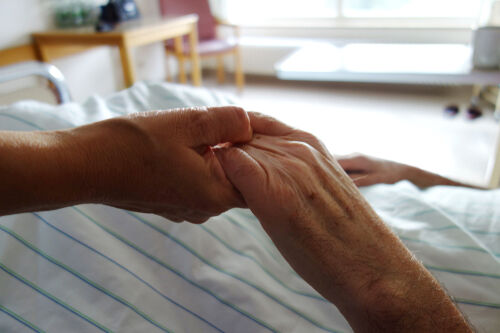Modern Slavery
Sharp rise in number of modern slavery victims since visa rules relaxed
In the UK, the social care sector is witnessing a significant increase in modern slavery cases.
This surge is largely attributed to the government's relaxation of immigration rules aimed at filling numerous vacancies in care homes and residential settings.
Unpublished data reveals a worrying trend: over 800 potential victims of modern slavery were identified last year in the care sector, a dramatic rise from previous years.
Eleanor Lyons, the independent anti-slavery commissioner appointed by the government, says she is “deeply concerned about the risk of exploitation and modern slavery for workers in the adult social care sector, particularly those from overseas who have come to the UK on short-term visas”.
This sentiment is echoed by Unseen, a Bristol-based charity, which reported more than an 1,100% increase in potential modern slavery cases in 2022 compared to 2021, following the Home Office's decision to add care workers to the shortage occupation list.
Justine Carter, director of Unseen, highlighted the disparity between the high fees charged by agents and the actual costs of visas and flights, often leading to debt and exploitation.

The Care Quality Commission (CQC) and other care groups have raised alarms about the rising trend of exploitation, warning MPs last month that modern slavery was now “a feature” of the UK’s social care market.
In recent years, referrals related to modern slavery in the sector have surged, with the CQC making significantly more referrals each year.
The government's decision in February 2022 to extend temporary visas, previously reserved for higher-paid workers, to foreign social care workers, has been a double-edged sword. While it has helped fill over 165,000 vacancies, it has also led to increased exploitation, raising concerns among trade unions and care operators.
Victims often endure a combination of financial or physical control, debt bondage, and restricted freedom, with many cases falling below the legal threshold for criminal prosecution. Yet, the harm and abuse involved remain substantial.
Various voices within the sector, including Melanie Weatherby of the Care Association Alliance and Gavin Edwards of Unison, are calling for better safeguards and support for migrant care workers to prevent exploitation and ensure fair treatment.
The Home Office has responded, emphasising its commitment to supporting victims of modern slavery and increasing prosecutions against perpetrators. However, the growing number of cases signals a need for more robust measures to protect vulnerable workers in the UK's social care sector.
Share
